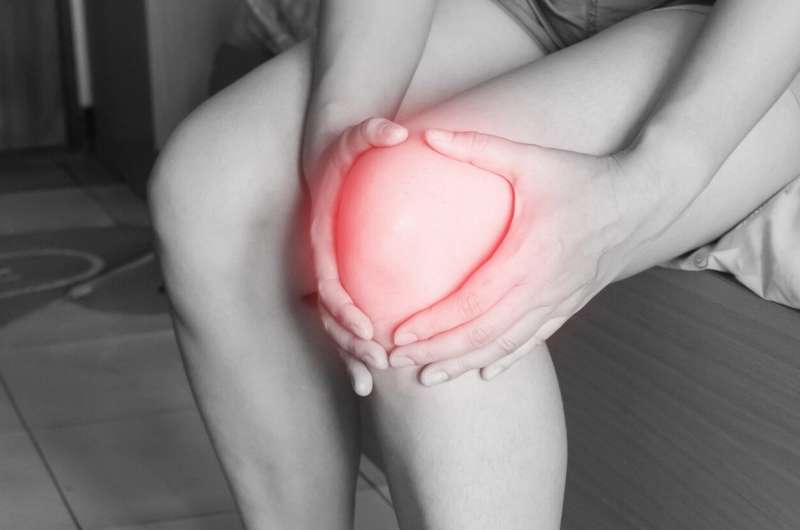This article has been reviewed according to Science X's editorial process and policies. Editors have highlighted the following attributes while ensuring the content's credibility:
fact-checked
trusted source
proofread
New study questions the efficacy of many osteoarthritis treatments

Recruiting osteoarthritis patients with a lot of pain to clinical studies may give incorrect results if the researcher does not account for the natural variation in pain that occurs with the disease. A research group from Lund University in Sweden is now drawing attention to the traps in clinical studies on osteoarthritis.
Osteoarthritis is a lifelong joint disease that is becoming increasingly common. The disease increases with age and often causes pain, impaired physical function and disability. Today, every fourth adult over the age of 45 years in Sweden has sought care for osteoarthritis, which corresponds to about 1 million people.
Osteoarthritis patients may experience fluctuations in pain intensity, with some periods of more pain followed by periods of less pain. This is all natural, but it may become problematic in studies of treatments for osteoarthritis as investigators typically recruit participants with pain above a certain level to participate in the study.
"People who have a lot of pain are likely to have less pain at a later measurement. This is called 'regression to the mean.' Because of this phenomenon, measurements during follow-up will often show positive effects whether the treatment is effective or not," says Martin Englund, professor of epidemiology at Lund University, and physician at the orthopaedic clinic, Skåne University Hospital.
In a study, together with statistician and associate professor Aleksandra Turkiewicz, they estimated the magnitude of the improvement that arises from regression to the mean for a typical study in osteoarthritis. That is, the part of the "improvement" that is simply due to natural variation. The study is based on data from a large population-based study in the United States of people with knee osteoarthritis. The researchers found that the phenomenon explained about 1 point improvement on a pain scale from 0 to 10 (no pain to worst pain imaginable).
"This represents a significant proportion of the reported improvement in many studies, especially considering that investigators often observe an average pain reduction of only 1 to 2.5 points in knee osteoarthritis patients" says Martin Englund.
Much of the apparent treatment effect is just an illusion, according to the researchers. To determine whether a treatment is effective or not, there must be an adequate control group that receives placebo, the study participants do not know what treatment they have received, and the treatment is randomly allocated. Therefore, for a treatment to be considered effective, it must produce better results than placebo, and investigators need to take regression to the mean into account.
The study, which is now published in The Lancet Rheumatology, is important for planning and interpreting results from research evaluating the efficacy of treatments for osteoarthritis pain.
"There is a great need for more effective treatments for osteoarthritis, which unfortunately means that the market opens up for several forms of treatments that incorrectly claim efficacy or exaggerate its size. Injections with platelet-rich plasma (PRP) are an example of a treatment with insufficiently proven efficacy, but also exercise in osteoarthritis is example where the studies often lack a relevant control group and the effects on pain are often overstated," concludes Martin Englund.
More information: Martin Englund et al, Pain in clinical trials for knee osteoarthritis: estimation of regression to the mean, The Lancet Rheumatology (2023). DOI: 10.1016/S2665-9913(23)00090-5





















